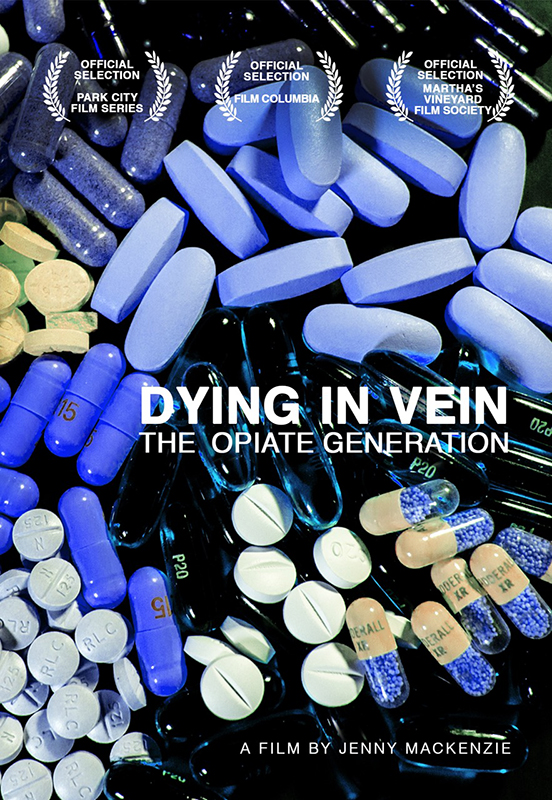Dying in Vein: The Opiate Generation
Film Reviews
Dying in Vein: The Opiate Generation
Director: Jenny Mackenzie
Thinking back to all of my health education classes as a teenager, I remember hearing a lot about how marijuana was a gateway drug that led to stronger, more dangerous drugs like heroin. The curriculum was apparently dangerously light when it came to teaching us about how prescription pain-killers functioned in exactly the same way. After watching Dying in Vein, a documentary directed by local filmmaker Jenny Mackenzie, it doesn’t look like much has changed as far as anti-drug education in Utah—even though 80 percent of Utah’s heroin users started their path to addiction by taking prescription opioids.
Dying in Vein chronicles four stories tied to Utah’s skyrocketing rates of opioid addiction and overdose—according to opidemic.org, Utah has the seventh highest drug overdose rate in the country. The film takes great care to portray the subjects as individuals so that we can see the faces and lives behind the terrible statistics. These aren’t the strung-out types whose images typically come to mind when someone mentions the words “addict” or “overdose.” These are your friends and neighbors. These are kids who come from wealthy suburbanite homes, play organized sports and wear clothes from American Eagle.
Mackenzie’s narrative style pulls no punches when it comes to capturing the harrowing consequences of addiction and overdose in Utah families and communities. We see the tumultuous road to recovery as it unfolds for Maddy and Page, a couple whose love for each other eventually trumps their drug addiction, but we also see how the shrapnel of a fatal drug overdose leaves its mark on the family and friends of one of these many victims. It’s a well-documented film that manages to cut through the unfortunate stereotypes that get applied to those who suffer from substance addiction, and it’s all the more poignant because these stories are happening in our own backyard.
Dying in Vein also sheds some light on the sad way that insurance and pharmaceutical companies can use these negative stereotypes to justify withholding resources from those who need them. Combatting this issue is an ER physician named Jen who is raising awareness for Naloxone, a drug designed to counteract the effects of opioid abuse. Her efforts with Utah Naloxone are geared toward increasing patients’ access to Naloxone, which can save someone’s life in the event of an opioid overdose.
Perhaps the most staggering thought that the film brings to light is this unattainable idea of a “pain-free society,” or a society that has branded going through pain and difficulty as being somehow abnormal. Utah is home to several communities that generate tremendous amounts of pressure for their members to manage families, work and other activities without getting completely stressed out of their minds. This pressure makes people feel somehow inferior when they do experience the pain of excess stress, which is where prescription pain medication starts to become a problem. It’s a vicious cycle to behold, but it’s ultimately one that speaks to everyone who has ever felt pressure to be or act a certain way in the face of psychological and physical pain.
For those who are interested in seeing the film—and I’d say anyone who lives in Utah falls under that umbrella—the filmmakers are taking their film on tour throughout the state. The Utah Film Center is hosting a screening of the film at the Salt Lake City Library on Sept. 26, which will be followed by a post-screening Q&A moderated by Doug Fabrizio of RadioWest. Throughout October, Utah Public Radio will be facilitating a five-city tour that will visit Logan, Ogden, Price, Vernal and Moab. The filmmakers are hoping to screen the film over 100 times by the beginning of next year, so those who would like to host a screening of the film for their own community event are welcome to contact the filmmakers for instructions on how to do so. For more information about scheduled screenings or how to host your own, visit dyinginveinmovie.org. –Alex Springer
